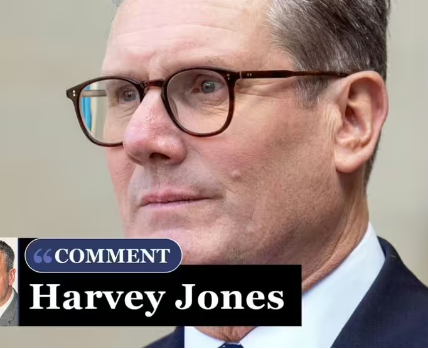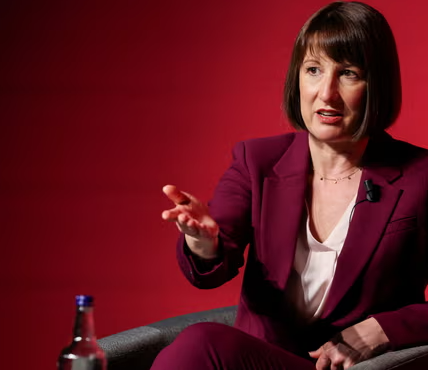A roundup of the government’s work, from its early moves on energy and housing to Thursday’s workers’ rights bill

Labour swiftly announced it would remove the ban on onshore wind power. Photograph: PA Images/Alamy
Labour has been frustrated with commentary suggesting it has not achieved enough since winning the election, pointing to a series of decisions and pieces of legislation it has pushed through. We look at what the new government has done in its first 100 days.
Economy
One of Rachel Reeves’s first actions as chancellor was to stand in front of the Commons and accuse the previous government of leaving a £22bn hole in this year’s public accounts. Every year, government spending diverges slightly from what was budgeted, but this was an unusually large amount, driven both by the higher-than-expected costs of housing asylum seekers and public sector pay deals.

Reeves’s solution to this was to put an immediate halt to various projects, including the road tunnel under Stonehenge and the A27 Arundel bypass. Boris Johnson’s promise to build 40 new hospitals has also been placed under review, with the prime minister, Keir Starmer, accusing his predecessor of making the promise without allocating the money.
Energy
When Michael Gove was asked at Tory conference to name the most effective Labour cabinet ministers so far, one of those he listed was Ed Miliband. The energy secretary has returned to a post he last held 14 years ago with a flurry of activity.
On 8 July, the first Monday after winning the election, Miliband announced he was removing the previous government’s de facto ban on onshore wind power. A day later, Reeves, unveiled the national wealth fund, a £7.3bn scheme designed to invest in green infrastructure such as clean steel and carbon capture.
Later that month, Miliband brought forward a bill to set up Great British Energy, a nationally owned energy production company that the government has put at the heart of its net zero strategy. The bill gives the company power to produce and distribute clean energy and spend money on energy efficiency schemes.
Keir Starmer announced in his Labour conference speech that GBE would be based in Aberdeen.
Transport
The first bill to pass the Commons under the Labour government was the rail nationalisation bill. The bill automatically brings rail networks back under public control once their existing franchise contract is over, or earlier if they breach their contracts.
The transport secretary, Louise Haigh, has also passed a bill to set up a new company called Great British Railways to manage both the track and the trains service. Some have questioned, however, why the rolling stock is not also being brought under national control.

Last month, Haigh reversed another piece of privatisation in the transport sector, allowing local authorities across England to run their own bus services once more. The transport secretary has also said she wants to make it simpler and easier for loc al leaders to conduct the franchising process.
Education
Labour has promised that it will introduce free breakfast clubs in every primary school in England, but it is starting slowly. Reeves announced at the Labour conference that 750 English schools would be invited to be part of a pilot programme.

Housing
Labour has promised to liberalise the planning regime and began soon after taking over government, not only overturning the restrictions on onshore wind power but also reimposing population-based housing targets on local authorities.
The Conservatives had given local planners a series of loopholes to avoid meeting those targets, in a move that housebuilders said had hampered new development, pushing housing approvals to a 10-year low.

Other reforms are planned, including making it easier for public bodies to issue compulsory purchasing orders and making it easier to build on green belt land.
Meanwhile, Matthew Pennycook, the housing minister, has introduced a package of renters’ reforms, which passed their second reading in parliament this week, despite the objections of the Conservatives. That package picks up on some of the ambitions originally championed by Gove when he was housing secretary, including bringing an immediate end to no-fault evictions and forcing landlords to make timely repairs to properties.
Campaigners, however, are unhappy that the Labour government has so far not enacted another package of protections for leaseholders, whom they worry are slipping down the government’s agenda. The government has promised to bring in a bill to restrict leasehold and boost the rights of tenants, but has so far not even enacted the measures passed through parliament under the last government.
Employment
Starmer promised that his government would bring forward a package of workers’ rights in his first 100 days, a deadline which was just about met when Angela Rayner, his deputy, published the employment rights bill on Thursday.

Her reforms include giving workers protection from unfair dismissal and paternity leave rights from the first day of their employment, rather than having to wait two years. The bill also bans employers from forcing workers to sign zero-hours contracts and stops them firing staff only to hire them back on lower pay, unless the company is threatened with bankruptcy.
While the bill was published in the first 100 days it will take another two years for it to come into force. Officials and ministers will spend that time consulting businesses and trade unions about the exact measures involved and how to police them.
Some of the pre-election promises have not made it into the bill. There will be no statutory right for workers to switch off outside their working hours, and the government will now consult on having a single status of worker. Unions have long campaigned for a single worker status to replace the distinction between those who are employed and self-employed, in part to tackle exploitation in the gig economy.
Immigration
As promised, Labour has ended the previous government’s Rwanda scheme, which had not sent a single asylum seeker to Rwanda but was already costing the government money. Scrapping it saved more than £2bn over two years.

In its place, Starmer and his home secretary, Yvette Cooper, have introduced a border security command to focus on people-smuggling gangs. However, the prime minister is still trying to sign returns agreements with European countries, agreements that might mean Britain having to accept migrants in return.
Since the election, nearly 12,000 people have crossed the Channel in small boats, slightly fewer than in the same period last year.
Justice
A week after the election, the justice secretary, Shabana Mahmood, announced an early release scheme that would see some offenders who had committed less serious crimes leave prison after serving 40% of their sentence. Mahmood blamed the prisons crisis she inherited from the previous government, which had left jails in England and Wales almost entirely full.

The early release scheme was controversial, but its purpose was underlined later in the summer as riots engulfed parts of the country. Speaking to journalists from the Downing Street garden after the riots had subsided, the prime minister described the decisions he had had to make while they were unfolding.
“I shouldn’t be sitting in the Cobra room with a list of prison places across the country on a day-by-day basis, trying to work out how we deal with disorder,” he said. “But that’s the position I was put in.”

Health
If Starmer is to show progress in one public service by the time he goes into the next election, it will have to be the NHS. His health secretary, Wes Streeting, commissioned Ara Darzi, a former Labour minister, to outline the scale of the challenge. Lord Darzi’s report, which was published last month, found that long delays for hospital, GP and mental health services were leading to thousands of unnecessary deaths.
Darzi suggested a range of changes, including focusing more on prevention and making companies pay “health levies” for things such as alcohol and tobacco.




